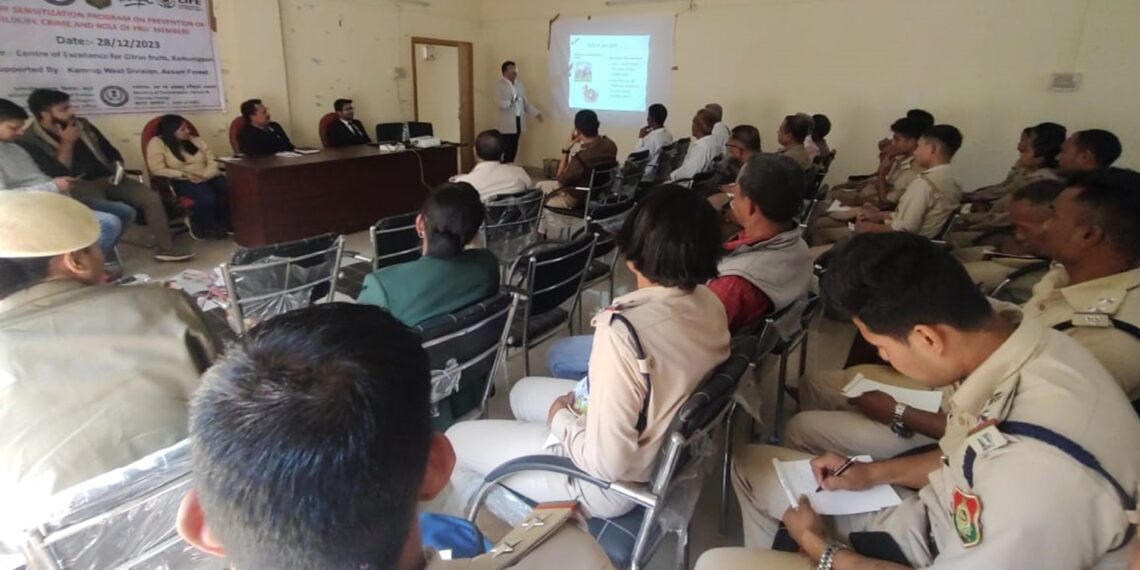GUWAHATI: In a concerted effort to engage local communities in wildlife conservation, a workshop titled, “Prevention of Wildlife Crime and Role of PRI Members”, was organised at the Centre of Excellence (Citrus crops) in Chaygaon, Bamunigaon, recently.
The Wildlife Crime Control Bureau (WCCB) under the Union Ministry of Environment, Forests & Climate Change partnered with Aaranyak to conduct the workshop.
The workshop targeted members of Panchayati Raj Institutions (PRIs), forest staff, and villagers, emphasising their pivotal role in preventing wildlife crime and illegal trade.
The workshop witnessed Jawaharlal Baro, Assistant Director of WCCB, shed light on the significance of wildlife conservation.
Baro outlined how local communities could actively contribute to curbing wildlife crime and trafficking.
Utilising a powerful PowerPoint presentation, he delved into species identification and the various covert methods employed by illegal wildlife traders.
The Divisional Forest Office, West Kamrup Division, played a supportive role in organising the workshop.
Forest staff from the West Kamrup Division and PRI members participated in the one-day sensitization program.
Dimpi Bora (IFS), Divisional Forest Officer of the Kamrup West Division, graced the workshop as a special guest, underscoring the importance of community involvement in wildlife protection.
Forest Ranger Shamim Akhtar from the Loharghat Range also attended the event.
A crucial aspect of the workshop was the informative session led by Ajoy Kumar Das, a practicing advocate at the Gauhati High Court and Senior Law Consultant of Aaranyak.
Das elucidated the three-tier Panchayati Raj system in India, emphasising its inception in 1959 and constitutionalisation in 1992 through the 73rd constitutional amendment.
Addressing the PRI members, Das highlighted the Assam Panchayati Raj Act, 1986, and its efficacy as a well-established system of local self-governance.
Das also assured them protection under Section 125 of the Indian Evidence Act 1872, assuaging any fears of reprisals for their cooperation.
The workshop aimed to create a collaborative framework between local governance structures and wildlife protection agencies, fostering a united front against wildlife crime in the region.















